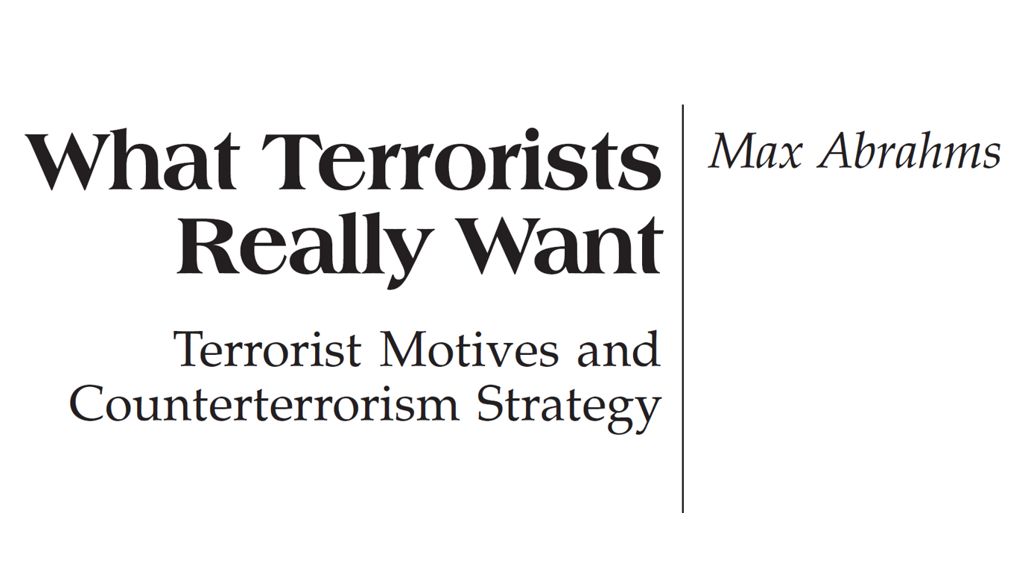Abstract
What do terrorists want? No question is more fundamental for devising an effective counterterrorism strategy. The international community cannot expect to make terrorism unprofitable and thus scarce without knowing the incentive structure of its practitioners. The strategic model—the dominant paradigm in terrorism studies—posits that terrorists are political utility maximizers. According to this view, individuals resort to terrorism when the expected political gains minus the expected costs outweigh the net expected benefits of alternative forms of protest. The strategic model has widespread currency in the policy community; extant counterterrorism strategies seek to defeat terrorism by reducing its political utility. The most common strategies are to fight terrorism by decreasing its political benefits via a strict no concessions policy; decreasing its prospective political benefits via appeasement; or decreasing its political benefits relative to nonviolence via democracy promotion. Despite its policy relevance, the strategic model has not been tested. This is the first study to comprehensively assess its empirical validity. The actual record of terrorist behavior does not conform to the strategic model’s premise that terrorists are rational actors primarily motivated to achieving political ends. The preponderance of empirical and theoretical evidence is that terrorists are rational people who use terrorism primarily to develop strong affective ties with fellow terrorists. Major revisions in both the dominant paradigm in terrorism studies and the policy community’s basic approach to fighting terrorism are consequently in order.






